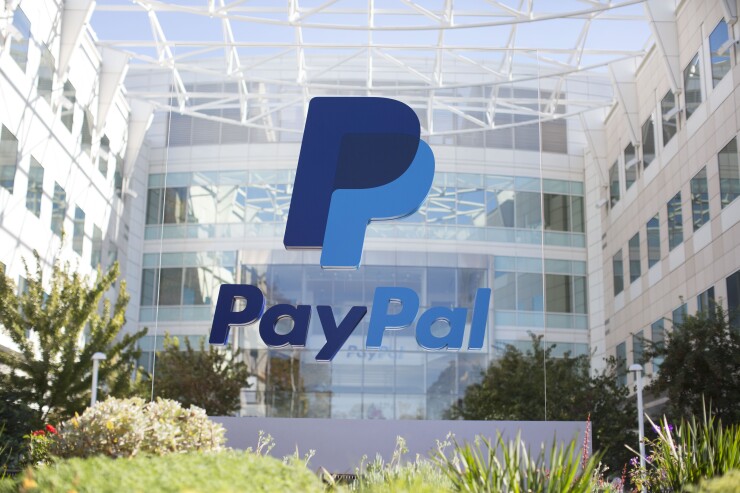Receiving Wide Coverage ...
License to spend
PayPal “will soon begin offering support for cryptocurrencies, including at the checkout,” after the New York State Department of Financial Services “said it had granted PayPal a conditional ‘Bitlicense,’
“PayPal’s big differentiator over existing digital wallets will be that consumers can spend their store of bitcoin and other cryptocurrencies at more than 20 million online retailers. Customers would be able to use cryptocurrencies as a funding source for online transactions next year, in the same way as they would top up their wallet using a bank account or debit card today.”

“Support for bitcoin and other cryptocurrencies paves the way for PayPal to work with other kinds of digital currencies, including those that might be issued by central banks, in the coming years.”
The Wall Street Journal offers a
“PayPal isn’t the first company to open its platform to cryptocurrencies, but in its technique it is
Financial Times
Opening salvo
Goldman Sachs’s Asia business was fined a record $350 million by Hong Kong’s securities regulator “for
Dropped suit
“One of Abu Dhabi’s sovereign wealth funds has
“The Abu Dhabi fund guaranteed around $3.5 billion of the $6.5 billion of debt issued by Goldman Sachs on behalf of 1MDB between 2012 and 2013.”
Washington Post
Message delivered
Morgan Stanley’s dismissal this week of its two most senior commodities traders for unauthorized communications through the WhatsApp messaging app shows that “the big investment banks may have been
“The departures highlight the challenge for banking executives and regulators in overseeing remotely working traders. After the tens of billions of dollars of fines imposed on Wall Street since the financial crisis — much of which was documented in electronic chat rooms — banks are suddenly having to grapple with an explosion of interactions taking place away from their direct oversight. From Zoom to Skype to WhatsApp, bankers are often encouraged by clients to connect on platforms that are hard to vet. By holding those at the top of the chain of command responsible for setting standards, Morgan Stanley is sending a strong message to its workforce that it won’t tolerate anything that even creates the possibility of misconduct.”
Opting out
There’s a reason millennials are switching from brick-and-mortar banks to virtual ones, a Bloomberg article says: “
Elsewhere
Slimming down
Deutsche Bank
“Sewing last year unveiled a restructuring plan centered on cutting 18,000 jobs, with about half of those expected in Germany. Deutsche Bank is currently merging Postbank’s IT with its own, which is expected to render the services provided by PB Systems obsolete by the end of next year. The plan, known internally as Project Unity, is expected to contribute the lion’s share to Sewing’s goal of cutting 1 billion euros of expenses in the German retail operations.”
Closer to launch
Agility Bank, the “Houston-based, woman-owned, predominately digital community bank,” has received conditional approval from the Office of the Comptroller of the Currency and the Federal Deposit Insurance Corp. to launch, the Houston Business Journal reported. “
The bank is in the process of raising $30 million in capital ahead of the launch. “Agility Bank will be a digitally focused community bank specializing in commercial lending to small to medium-sized business customers.”
Double-edged sword
The Federal Reserve “
Low rates could encourage “higher levels of borrowing and financial leverage, increased valuation pressures, and search-for-yield behavior,” she said.





